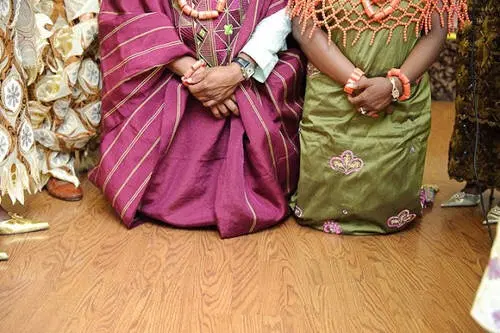FCT residents share mixed views on inter tribal marriage
FCT residents share mixed views on inter tribal marriage
Residents of the Federal Capital Territory (FCT) have expressed diverse views on inter tribal marriage, highlighting both the cultural challenges and the benefits of marrying across ethnic and linguistic lines.
In interviews with the News Agency of Nigeria (NAN) on Tuesday, some residents stressed that intertribal marriages required understanding and tolerance, while others saw them as a bridge for unity and cultural inclusion.
Mrs Charity Udeaja, a housewife and mother of four, said she could not marry someone she couldn’t communicate with, as language and cultural familiarity were key to long-lasting and peaceful marriage.
According to her, marriage should be rooted in mutual love and understanding.
She believed some cultural practices could be difficult or even unsafe for non-natives to adapt to or accept fully.
“I’m from the East and married within. I’d feel like a stranger elsewhere.
“Being able to communicate and feel accepted is essential in any home,” she said, expressing firm personal preference.
Similarly, Mrs Dooshima Akinjide, a public servant, expressed that her marriage was struggling due to cultural differences.
She said she underestimated the challenges and now advised caution for those considering cross-tribal unions.
“Marrying outside your tribe should foster unity, but that hasn’t been my case.
“It’s not just your partner, it’s the entire family and their traditions you have to navigate,” she explained.
She recounted being surprised by some cultural practices.
“My husband’s family believes in rituals I didn’t know about. Love isn’t enough, communication and cultural alignments are critical,” she added.
Mr Babagana Salihu, a father of four, said his intertribal marriage had been difficult, especially due to pressure from his in-laws.
He said if given the chance, he would choose differently.
“I love my wife, but the cultural friction from her family is overwhelming. I hoped for unity, but it’s been more stressful than I imagined,” he said, urging caution for others.
Read Also: Bank disburses ₦1trn empowerment funds, 62% benefits women – MD
In spite of challenges, some residents shared success stories.
Mrs Chibugo Adebowale, married for 15 years, said her intertribal marriage had been peaceful and joyful, built on mutual respect and cultural openness.
“I’ve never regretted marrying outside my tribe. Learning my husband’s customs helped us bond.
“His family accepted me, and we’ve built something beautiful together,” she said, with pride and gratitude.
She encouraged couples to be open-minded.
“Every culture has its values. If you’re willing to learn and adapt, intertribal marriage can enrich your life,” she said.
Mrs Godiya Smith, a mother of two, also supported intertribal unions, stating that ethnicity shouldn’t determine marital success.
“Compatibility matters more than where your partner comes from. You can marry same tribe and still struggle,” she said.
Smith said she believed marriage was a lifelong journey of learning.
“I’m from Niger, my husband is from Rivers. We’ve been married 12 years. We use English at home and teach our children both cultures.”
Smith said respecting each other’s traditions strengthened bonds.
“I cook his local food, dress our children in his traditional attire during cultural events, and it helps us all feel connected,” she said.
VMT NEWS reports that residents agree that intertribal marriage can be successful with love, communication, and mutual respect.
While it has its challenges, it remains a meaningful path toward cultural unity and shared national identity.

